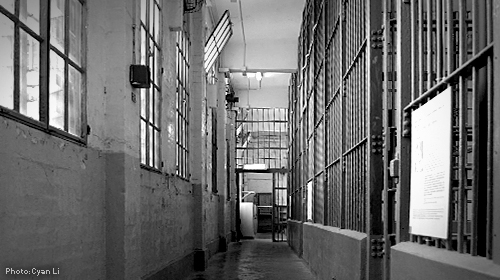US at UN Prisoners’ Rights Meeting: Progress, but Still Wrong on Solitary Confinement


Yesterday I wrote about the ACLU’s efforts to ensure that the U.S. government is properly engaged at a U.N. meeting in Buenos Aires on uniform rules for the treatment of prisoners. Now that the meeting is underway, it appears that the U.S. delegation is playing a constructive role – but we’ve still got work to do.
In the delegation’s opening remarks at the U.N. Intergovernmental Expert Group Meeting, they acknowledged the need for revisions to the Standard Minimum Rules for the Treatment of Prisoners (SMR) and welcomed the participation of non-governmental organizations in the process – both dramatic changes from the previous U.S. position. The delegation proposed concrete and positive changes to the SMR, including, for example, an obligation by prison medical staff to report any case of suspected torture, excessive force, or other abuse of a prisoner.
Unfortunately, the U.S. continues to defend the use of long-term solitary confinement. Several governments and NGOs endorsed a 15- or 30-day limit on solitary confinement, as well as an absolute ban on solitary for vulnerable groups like juveniles, pregnant women, and persons with mental illness. The U.S. delegation rejected all of these proposals. To be fair, the U.S. was not the only government resisting meaningful restrictions on solitary confinement, and the U.S. proposal did contain some positive elements, such as a provision that visiting shall not be restricted for prisoners in solitary absent security justifications. But it’s notable that the Chinese government endorsed without hesitation a 15-day limit to the use of solitary confinement.
After the U.S. delegation spoke, I made the following statement on behalf of the ACLU:
The American Civil Liberties Union considers it essential that the Standard Minimum Rules address the use of solitary confinement, a practice that exists in many states but is not currently covered by the rules. Everyone agrees that it is sometimes necessary to physically separate some prisoners from others to prevent injury or death. But long-term or indefinite solitary confinement is inconsistent with international human rights standards.
The ACLU endorses the revisions to Rule 31 proposed by the Essex Meeting. These revisions would prohibit prolonged confinement without sustained and meaningful daily human contact. They would provide that solitary confinement shall be used only in exceptional cases when deemed absolutely necessary for as short a time as possible, and shall be subject to regular, substantive independent review. Finally, they would prohibit the solitary confinement of juveniles, pregnant women, women with infants and breastfeeding mothers, and persons with mental illness.
The ACLU makes two additional recommendations. First, we recommend that solitary confinement shall be used only in exceptional cases when deemed absolutely necessary to prevent death, bodily injury, or a major breach of prison security. Our second additional recommendation is that solitary confinement exceeding 30 days in duration shall be presumed to be inconsistent with the Rule. The UN Special Rapporteur on Torture has recommended an absolute prohibition on solitary confinement exceeding 15 days.
The Buenos Aires meeting illustrates both the power of NGO advocacy and the need for us to keep the pressure on. But we have to remember that governments at this meeting are not negotiating a new prisoners’ rights treaty that will include legally binding norms, but rather updating and revising old rules that are considered to be “soft law,” or guiding principles that represent acceptable best practices that the U.S. historically supported. If China can live with a 15-day limit on solitary confinement, there’s no reason we can’t persuade the U.S. to do the same.
Learn more about solitary confinement: Sign up for breaking news alerts, , and .

